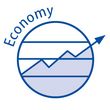Research Themes
Research Themes
Research Themes at the World CUR 2019
Submitted research will be arranged in six interdisciplinary categories, which are based on some of the most significant challenges of the 21st century.
The themes will allow you to engage in interdisciplinary debates and will be accompanied by “thematic sessions” aiming on professional networking and project development.

A Global Perspective
As you consider submitting your original research contribution to the World CUR 2019, we would like to encourage you to think of your research findings in global terms even though your research focus may have centered on issues of local dimensions or concerns. We would like you to highlight, as much as you can, how your research results may have a wider reach, how they may concern a wider audience far away from your own geographical area, or how they may affect other parts of the world. In short, we would like to encourage you to reflect on how your findings may impact humanity or how they may possibly connect to universal values.

Please read through the research themes and determine which theme matches best with your research.
When you submit your abstract you will be asked to indicate the theme that aligns with your research.
Illustrative Topics for each Research Theme

For each theme, you will find a list of research topics. These examples are illustrative, but not exhaustive. The presented topics are for your guidance only and should not limit any contribution you may think falls well within a theme.
The Environment, Human Footprints, and Human Responsibility

Understanding and protecting the environment remains one of the central challenges of our time. The dynamic relationship between humans and the environment is complex and fraught with difficult data, questions, and decisions. We invite papers on all aspects of environmental science, human-environment interaction, and possible interventions, remediation, and responses to environmental crises humans face and will face in the coming decades. Potential presentations could focus on the dynamics of a problem such as climate change, habitat loss, freshwater availability, or the loss of biodiversity. Another avenue might be on potential threats to the quality of the environment either through intentional and unintentional harm caused by humans. Works could investigate technological responses to these challenges through remediation of harm, the use of more sustainable practices, or other technological innovations. Though most of the topics are focused in the natural sciences, papers are very welcome from the arts and humanities as they engage, describe, portray, and provide new meaning onto these topics. Social science work in this theme can focus on the physical impacts humans put on the environment or how the environment puts humans in crisis to change and adapt for continued survival. Papers are also welcome on the challenges of developing sustainable businesses as well as papers on how particular business segments might respond under new climate conditions to create new enterprises or revise current ones.
Illustrative Topics
- Abandonment of unsustainable land
- Air, soil and water pollution
- Climate change, global warming, and human carbon footprint
- Deforestation
- Endangered species and loss of biodiversity
- Environmental economic impacts
- Environmental sustainability
- Freshwater science, supply, and availability
- Genetic modification
- Household, medical and industrial waste
- Human adaption to environmental change
- Natural resource depletion
- Nuclear, alternative and renewable energy
- Ocean acidification
- Oil drilling and fracking
- Over population and urban sprawl
- Over-fishing and other effects on marine life
- Radioactive waste and nuclear issues
- Space exploration and space mining
- Sustainable water supply
Global Health

This theme focuses on health equality and the concerns that transcend national borders. Despite considerable progress made in the prevention and treatment of many diseases, continuing disparities result in inequitable access to health care and medicines, with the poor more likely to suffer chronic health problems, reduced lifespan and high rates of infant mortality. At the same time, emerging communicable diseases such as Ebola, Zika, MERS and Crimean-Congo fever pose new threats to public health. Non-communicable diseases such as obesity, diabetes, heart disease, cancer, traumatic injuries and mental health challenges also continue to pose major threats to global health. The world is facing unprecedented challenges posed by antibiotic resistant infections, exacerbated by the misuse of antibiotics in medicine and farm producers. The interrelationship between the environment and health is also now becoming evident, with air pollution, genetic modification of foods and contamination contributing to adverse health events across the globe. This theme therefore invites presentations across a range of disciplinary fields addressing these global health concerns.
Illustrative Topics
- Drug regulation and drug policy
- Drug testing
- Emergency medical care
- Environmental issues
- Global strategies for disease control
- Health care training
- Health of refugees and asylum seekers
- Healthcare funding
- Healthcare privatization
- Human and animal experimentation
- Information technology and health care
- Maternal and infant health
- Medical and pharmaceutical research ethics
- Mental health
- Natural and alternative medicine
- New and emerging global health threats
- Pharmaceutical use of drugs such as cannabis
- Public health issues
- Robotics and healthcare
- Vaccination and mandatory vaccination
Current and Emerging Economic Issues

This theme considers the complexity and interconnectedness of economic questions. The topics outlined on the right ask researchers to explore the complexities of trade, labor, economic policy, social safety nets and their precarious balance in our world.
Illustrative Topics
- Big corporations and their power
- Corporate and social responsibility
- Corporate mega mergers
- Domestic jobs
- Equal pay
- Farm subsidies
- Globalization and localization
- Government pensions
- International trade agreements
- Labor unions
- Minimum wage
- Offshore banking
- Outsourcing
- Overtime and overtime pay
- Pension reform
- Protectionism
- Social security and retirement age
- Tariffs
- Taxes
- The blurring of personal and professional spaces
- Welfare
Communication, Information Technology Trends and Challenges

This theme addresses the all-encompassing world of data, communication, and information technologies. The rising status of data and technology in societies offers a wide range of research questions from various Sciences (Data, Natural, Physical, and Social), Communication, Business, the Humanities, and Arts. Some potential areas may include data and network security procedures, issues, and their impact on individuals and the larger economy. The Internet of things and autonomous devices provide numerous conveniences for society, but raise other social and ethical questions. Social networks create new opportunities for communication and commerce in the 21st century, and we are still learning of their influence. Geo-location tools and applications have become indispensable in most of our daily lives but only a few are actually apparent. The rise of public data analysis has been a result of the availability of large public data sets along with the widespread availability of high quality data analytic and visualization tools. This has led to a wide range of data journalism of varying quality across the planet.
Illustrative Topics
- Adaptive security architecture
- AI and advanced machine learning
- Big data
- Communication bubbles
- Data access
- Data analytic tool development
- Data analytics
- Data journalism
- Data privacy
- Data visualization
- Decision science
- Digital technology platforms
- Drone technology applications
- Geospatial data applications
- Intelligent and autonomous things
- Intelligent apps
- Network and data security
- Public Use Microdata
- Social networks
- The dark web
- The surveilling society
- Virtual and augmented reality
International Power Struggles, New World Order and Shifting Alliances:
Emerging Political and Social Issues of the 21st Century

This theme will consider the close associations between the social and the political, especially what shapes this symbiotic relationship on a local and/or global scale. In the last three decades, the world we currently live in has indeed seen drastic changes on many social and political levels. Some of the major events that redefined the world as we know it today include (but are not limited to) the fall of the Berlin Wall in 1989, the 2001 attack on the World Trade Center, the invasion of Iraq in 2003, and the events of the so-called “Arab Spring”. These events and others have slowly introduced geopolitical changes that later shaped increased competition for scarce world resources especially non-renewable sources of energy. They have ushered a new world order with with no clear world leader, new international power struggles, power vacuums and failed states in areas where international boundaries are being re-drawn. These changes have especially introduced fast-shifting political alliances, deep social changes, and a host of new social problems. The following are some examples of possible research topics that you can address under this theme.
Illustrative Topics
- Airlines and passenger rights
- Airport surveillance
- Campaign finance and foreign lobbying
- Conventional and non-conventional weapons’ proliferation
- Democratization of information
- Domestic, foreign intelligence and surveillance
- Extremism and terrorism
- Foreign political assassination
- Gender identity and gender workplace diversity
- Globalization and parenthood
- Government, security and privacy
- Gun control
- Human rights, refugee rights, torture, prisoners’ rights, POW rights
- Immigration, illegal immigration, immigration ban, illegal immigrants’ detainment, immigrant assimilation, immigrant labor, and refugees
- Internet neutrality
- Political leaks
- Political shifting alliances and new world hotspots
- Politician and political crime
- Privacy in the time of the internet (privacy paradox)
- Racism, ethnocentrism and equality
- Religious freedom
- Sexual identity and sexual freedom
- Sexual trafficking
- State sponsored terrorism
- Travel bans
- Voter fraud, international vote meddling
- War and peace
- Whistleblower protection
- Women’s health
- Women’s rights
The World We Create

This theme addresses creative inquiry and design in a global context. Presentations on both intra-cultural and inter-cultural creative endeavors are sought, in both performing and visual arts, with the caveat that presentations on performance will be undertaken through either oral or poster format. How are the cultural heritages of small groups, as well as nations currently preserved? How are long-standing cultural heritages and expressions transformed through global interactions, particularly in the context of population migrations and resettlements? How are artistic endeavors combining with Science, Technology, Engineering, and Mathematics (STEM) disciplines to create new programs of study, interdisciplinary fields, and new businesses (i.e., from STEM to STEAM)? How are design and innovation cultures and sensibilities blending with manufacturing to power the emerging “Maker” movement? How is technology transforming humanities research, through the digital humanities movement? Lastly, how are social media tools leading both to new forms of artistic and creative expression, and connecting to political movements and decision-making pathways.
Illustrative Topics
- Cultural heritage
- Digital humanities and oral history research
- From STEM to STEAM (Science, Technology, Engineering, Arts, and Mathematics)
- Inter and multi-cultural connections
- “Maker” movements and creating post-industrial production pathways
- Performing arts [will be presented in terms of oral or poster format only]
- Social media and the creation of new information, political movement, and decision-making pathway
- Visual arts [will be presented in terms of oral or poster format only]



